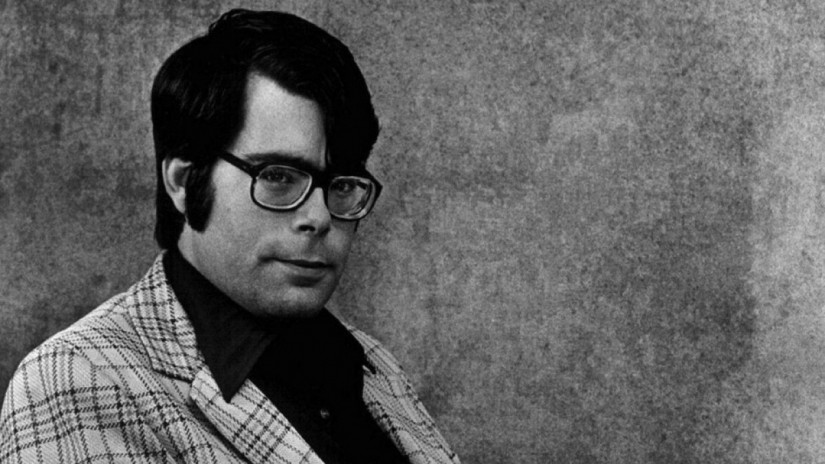
Stephen Edwin King(Born in 1947) ? An American author, a well-known novelist who made his name in the horror, supernatural fiction, suspense, science fiction and fantasy genres. Many of his stories have been adapted into feature films, television series, and comic books. So, what are the secrets behind his success? His talent? Innate qualities? Inherent skills? Storytelling ability? Creativity? Vivid Imagination?Or?something else also played a role? Let?s dig in.
Note: The below content is mostly from the Stephen King?s book ?On Writing?.
SCARED FOR THE LIFE
Don Norman in one of his books says, ?The world needs both optimists and pessimists. When an optimist looks to awe customers, Pessimist looks to scare customers and comes out with ideas like Amusement parks, Dangerous joy rides, haunted houses etc..?.
-From his early age, Stephen was scared of many things. He was scared of dark, snakes, rats, spiders, psychotherapy, deformity, closed-in spaces, choking, death, flying and so on. He wanted the light to be on so that he could sleep in the night. Not an easy life for a child of a 4?5-year-old. He had always imagined that something was in the closet. His imagination slowly became very active even at that young age.
-It was believed that King?s scariness was due to a childhood event which he could not remember(King witnessed his friend being killed by a train). This traumatic event could be one of the possible explanations for King?s vivid imagination.
-There was a ?horror? program in the radio at that time called Dimension X, and King?s mother didn?t want him to listen to that because she felt that it would be too scary for him. But Stephen sneaked out and listened to them. Later he had gone to bed with a trembling body. He liked scariness.
-King reveals that part of the reason he began to write is to drown that scariness out of his mind, drive those darkest fears temporarily from his mind.
-And Stephen?s mother loved anything ?horror? and ?scary?. So apparently, Stephen had some influence from her.
AVID READER ? PRACTICE FROM AN EARLY AGE
Neurologist Daniel Levitin states, ?The studies have shown that thousands of hours(appx. 10000 hrs) of practice are required to achieve a level of mastery ? to be called an expert in a field?. Starting early in your life provides you with an enormous amount of time to practice
Reading Habit ? Stephen?s mother encouraged King and his brother Dave to read books from their childhood. She imbibed the reading habit. When She could not afford babysitters, she had offered them books and asked them to read aloud to each other. As soon as she comes back, she would ask questions to confirm that they had read those books.
Develop Interest, Build Passion and Practice ? Stephen King, at the age of around five or six, spent most of the time in bed or housebound rather than in the school. He had measles followed by ear and throat infection. He missed almost all of the first grade. What did he do in those times? He read approximately tonnes of comic books and then novels. All on ?horror?, ?science fiction? and ?mystery? genres. It was a seminal point in King?s life that led to the development of imagination and his ability to tell stories(One of Stephen?s prominent skill is ?Story Telling?). Situations help people to change for the good.
As Stephen kept reading so many books, he began to write. Initially, he copied some of the stories from those comics with slight modifications here and there. His reading and writing made his time in bed more tolerable, the pain more bearable.
One day, he showed one of those copycat stories to his mother. His mother was blown away but got little disappointed when she came to know that Stephen had copied the story. She encouraged Stephen to write his own as she believed that he could do better than some of those comic book stories. She planted the idea that Stephen was a special kid with some special ?storytelling? abilities. That was a turning point in his life. Sometimes all we need is a ?sincere encouragement? ? a little push in the right direction.
Eventually, Stephen wrote a story about four magic animals who rode around in a car and showed it to his mother. She got engrossed in the story and she laughed at places. She appreciated. She even sent copies of that story to her relatives and friends. This act made Stephen happier. He went ahead and wrote some more short stories. For every story he wrote, Stephen?s mother gave him a quarter apiece. The first buck he made in the writing business. This further motivated him. Consistent and honest encouragement bear results.
PUBLISHING EXPERIENCE
Stephen?s Brother Dave was bored with the high school. He liked to be active all the time ? A kind of restless character. To escape the boredom, he started a newspaper called ?Dave?s Rag?. Stephen worked with him and wrote stories and other articles for the magazine. Dave engineered a drum-press with the available components and developed a reliable printing machine.
The brothers distributed the magazine copies in their village and among their schoolmates. The circulation rose slowly. King?s stories laden with humour became a hit. He became famous among the known circle of friends and neighbours.
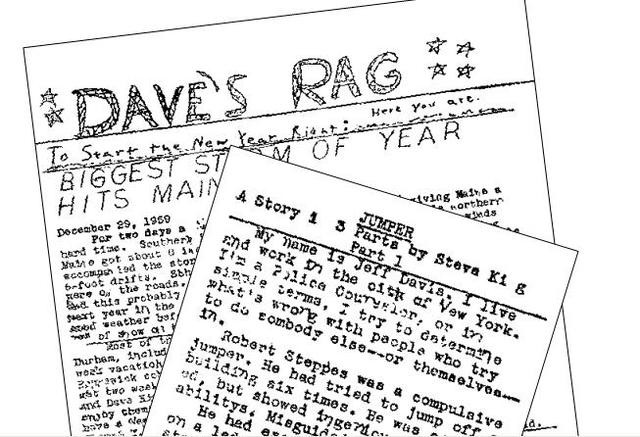
INFLUENCE OF TELEVISION AND MOVIES
Television programming has had a huge impact on American and world culture. Many critics have dubbed the 1950s as the Golden Age of Television. In the year of 1946, about only 8,000 households in America had a television set. But by the mid-1950?s three out of every four homes in America had their very own TV.
In the mid-1950s, Science fiction, horror, crime and mystery shows were on the upswing in Television programmes ? Shows included Big Town, Highway Patrol, Treasury Man in Action, Night Watch, The Untouchables, Racket Squad, Perry Mason. Suspense, adventurous shows soon followed ? Captain Midnight, Dangerous assignment, I led three lives, passport to danger, Sea-Hunt and so on. Horror shows ? One Step Beyond, The Veil, Alfred Hitchcock Presents, The Twilight Zone and so on. Stephen had spent considerable time in watching those shows. He was particularly interested in those late night ?horror? shows.
The Twilight Zone ? One ?Science fiction? show had a deep impact ? Rod Serling?s ?The Twilight Zone? series influenced a cultural shift among the writers, directors, screenplay artists.
In Serling?s words, ?The Twilight Zone ? A series of imaginative tales that are not bound by time or space or the established laws of nature.?
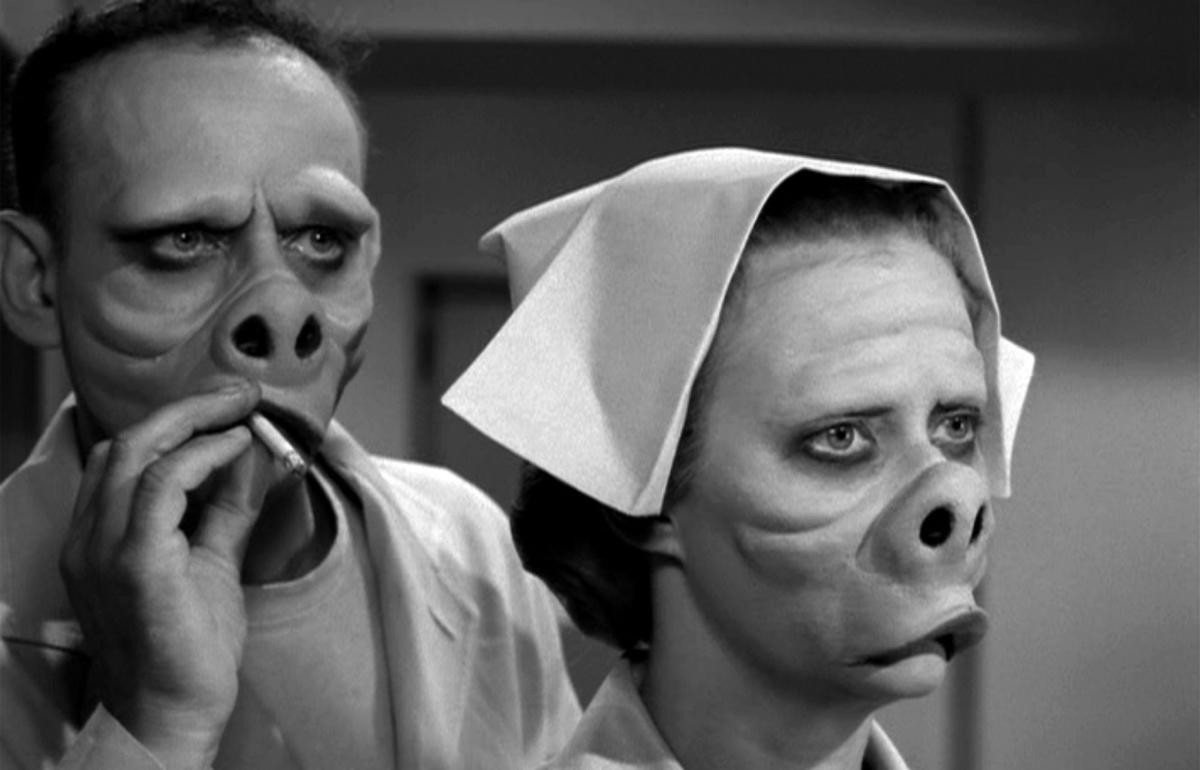
The Twilight Zone broke the traditional way of imagining sci-fi stories and demonstrated a new way of visualising things ? It showed an unfamiliar world but indicated that sci-fi shows could be interesting.(An intelligent, creative and meaningful out of world stories).
Rod Serling took viewers a journey through a dimension of sight, sound, and imaginative science fiction settings, plots each week. The series brought a new perspective on ?experience? storytelling. Many of the storytelling techniques Serling used in his scripts especially the twist endings influenced many science fiction TV shows and movies. Every story had some moral message that appealed to an adult?s inner philosophical mind, yet easy enough for a child to understand.
The TV show had partly influenced or inspired many artists other than Stephen king ? Chris Carter(Born 1957), Stephen Spielberg(Born 1946), Tim Burton(Born 1958), George Lucas(Born 1944), Ridley Scott(Born 1937), Peter Weir(Born 1944), George Romero(Born 1940), Jim Jarmusch(Born 1953), Chris van Allsburg(Born 1949), Cindy Sherman(Born 1954). The TV show continued to inspire people born after the 1960s too.
MOVIES ? Hollywood too was smitten by the ?Science-fiction? bug. Between 1948 and 1962, Hollywood released more than 500 science-fiction films. During 1957?66, an average of 25 science fiction movies and 20 horror movies was released every year.
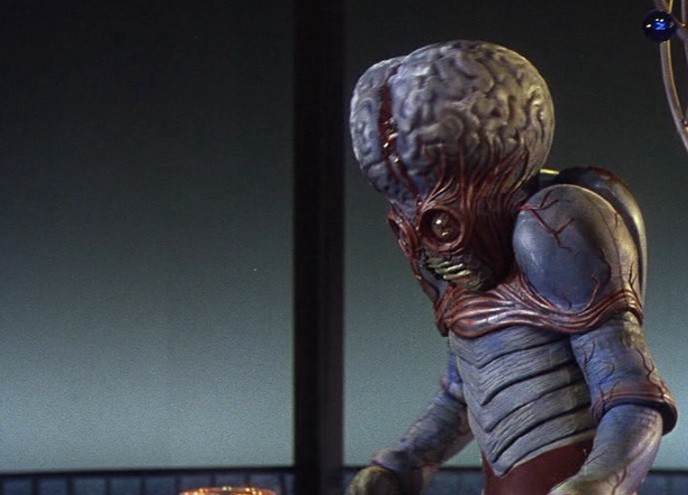
From 1958 to1966, Stephen watched movies every weekend unless he is not well. He focussed predominantly on Horror movies, Science fiction movies.
The whole world of adventure, crime-fictional stories, horror stories fed Stephen?s imagination and his storytelling ability.
FORREST J ACKERMAN
Forrest J Ackerman inspired many children to see science fiction as a literary and an art. He transformed many lives. He was central to the formation, organization and spread of science fiction. He coined the genre nickname ?sci-fi?.
Ackerman was known for massive collection of science fiction, fantasy and horror film memorabilia. As a literary agent, he represented some 200 writers. Ackerman was credited with nurturing and even inspiring the careers of several early contemporaries like Ray Bradbury, Ray Harryhausen, Charles Beaumont, Marion Zimmer Bradley and L.Ron Hubbard.
Ackerman published a magazine ?Famous Monsters of Filmland (1958?1983)? in 1958, primarily targeting late pre-adolescents and young teenagers, which introduced the history of the science fiction, fantasy and horror film genres to generation of young readers who later became successful writers, filmmakers and screenplay artists.
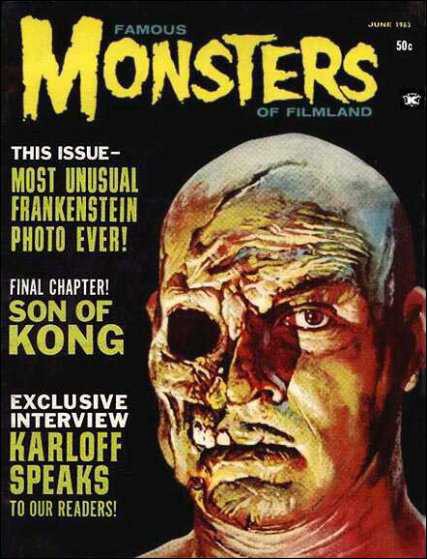
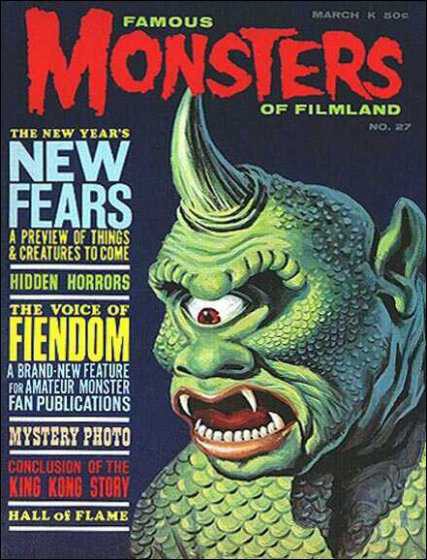
The magazine promoted the behind-the-scenes artists involved in the making of those movie characters, sets, the storyline which further inspired kids. It featured synopses of horror films; rare photos, new monsters and interviews with actors such as Boris Karloff, Bela Lugosi and Vincent Price; and articles about makeup and special effects.The magazine was touted as world?s first magazine on ?Monsters?. Those monsters really turned on the curious minds of kids.
In this way, Ackerman inspired many artists including Joe Dante, Peter Jackson, Stephen Spielberg, Joe Dante, John Landis, Tim Burton, Donald F Glut, Penn & Teller, Billy Bob Thornton, Gene Simmons, Rick Baker, George Lucas, Guillermo del Toro, Danny Elfman, Frank Darabont, John Landis and countless other writers, directors, artists including STEPHEN KING.
If you were born between 1940 to 1960, you would be in an ideal age bracket to read Ackerman?s magazine and get inspired.
THE PIT AND PENDULUM
From 1958 to1966, Stephen watched a movie every weekend ? Science fiction and horror movies. Many movies fascinated him. But one movie influenced him a lot. ?The Pit and Pendulum?.
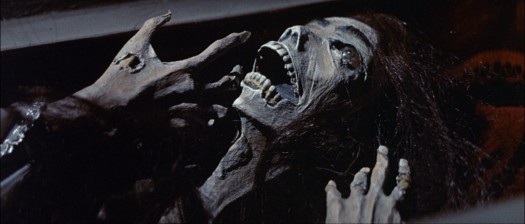
The movie inspired Stephen so much that he began to write the movie?s story, printed it using Dave?s drum-press and took the copies to school. He made four dozen copies. By afternoon, he had sold almost all the copies. It was a massive hit among his schoolmates. It was his first successful publishing. It made him happier and gave him enough confidence & motivation. When summer came, Stephen wrote a new original story ?The Invasion of Star Creatures?, printed it and took them to his school. As ?The Pit and Pendulum? had made him popular with his school, it was easy to sell his new original story. The start of an epic journey.
THE UNLIKELY MENTOR
Stephen?s serial story in Dave?s rag magazine and his ?The Pit and pendulum? copies have made him famous and well known among students and faculty. During his sophomore, he was made editor of the school newspaper which further provided him opportunities to experiment and showcase his skills.
John Gould, editor of Lisbon?s weekly newspaper had an opening for a sports reporter and he approached Stephen?s school to recruit. As Stephen was well known by this time, the school asked him to take up the job. Gould offered a wage of half a cent a word. The first time somebody promised King wages for his writing.
Stephen took up the job. He submitted his reports to Gould. Gould made corrections in Stephen?s report and gave him suggestions. Though Stephen took a fair share of English classes, John Gould taught something different ? write only what is necessary and leave out whatever would not add value to the story. This experience changed Stephen?s writing skills.
H.P.LOVECRAFT
Howard Phillips Lovecraft (August 20, 1890 ? March 15, 1937) was an American ?horror-fiction? writer who achieved posthumous fame. He was virtually unknown during his lifetime and died in poverty. His work started becoming famous around the 1960s and he began to acquire the status of a cult writer in the counterculture. Reprints of his work proliferated in that period.
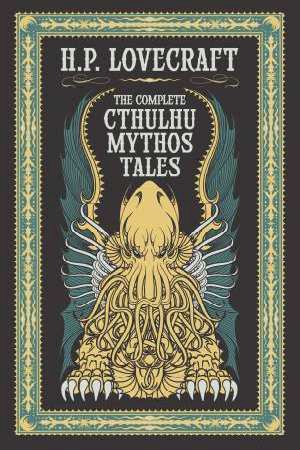
Lovecraft?s writing, particularly the so-called Cthulhu Mythos, has influenced fiction authors including modern horror and fantasy writers ? Stephen King(Born 1947), Ramsey Campbell(Born 1946), Joe R Lansdale(Born 1951), Alan Moore(Born 1953), Junji Ito(Born 1963), F. Paul Wilson(Born 1946), Brian Lumley(Born 1937), Caitln Rebekah Kiernan(Born 1964), Neil Gaiman(Born 1960), Clive Barker(Born 1952), Briane Keane(Born 1953), Alan Moore(Born 1953), Mike Mignola(born 1960), Stuart Gordon(born 1947), Guillermo del Toro Gmez(Born 1964), H R Giger(Born 1940).
A collection of short stories by HP Lovecraft called The Lurker Of The Threshold has often been cited by Stephen King as a catalyst in becoming a writer.
CAN SOMEBODY TEACH GRIT?
Successful people were grittier. Grit is about Determination. Successful people stuck with their commitments longer than others. Grit is about Consistent Commitment. Grit is about perseverance.
When King was three years old, his father, Donald Edwin King, deserted his family. His mother, Nellie Ruth Pillsbury, struggled hard to raise King and his adopted older brother David by herself. Stephen did not have a pleasant childhood.
In the 1960s, Stephen stumbled upon a box in his home -A lot of rejection slips from the magazines were inside the box. Those slips were addressed to his father. His long gone father was an aspiring writer and he had submitted many of his stories to magazines. Stephen asked his mother about those rejection slips and his father?s writing ability. His mother replied ?Your father didn?t have persistence. That?s why he left us?. The ?Persistence? word kept ringing in Stephen?s ears.
From the age of Thirteen(In the year 1960), Stephen began submitting his own stories to magazines and started his own collection of rejection slips. But unlike his father, Stephen didn?t want to stop sending them. His father?s fate remained fresh in his mind. He was gritty and determined to get published.
THE LUCKY LEAP
Stephen finished college, started working in some temporary jobs and was struggling to meet the ends. Soon, he got a job to teach English in a nearby town. While working as a teacher, his life was completely occupied by work other than writing. For the first time in his life, he found writing was hard. After working continuously for the whole day, he could not summon enough mental energy to write. He was worried that his life would end up like his mother.
One day, based on an earlier incident in a school, Stephen got an idea for a story. He began writing. He made three pages of the first draft of the story. After going through the draft, he realised that the story was not that effective. He felt unhappy and disgusted. He crumbled up the paper and threw it in the dustbin. The next day, when Stephen?s wife Tabby was about to throw the trash away, she saw those crumbled papers. She took those papers, smoothened them out and read them. She got blown away by the story. When Stephen came back home from the school, she requested him to continue writing the story. That story turned out to be the first successful novel of Stephen?s career. It was the breakthrough Stephen has been waiting. The story?s name was ?Carrie?. Till that time, he was not earning enough from his writing. Carrie turned around his life. The book sold 30,000 copies and earned $200,000.
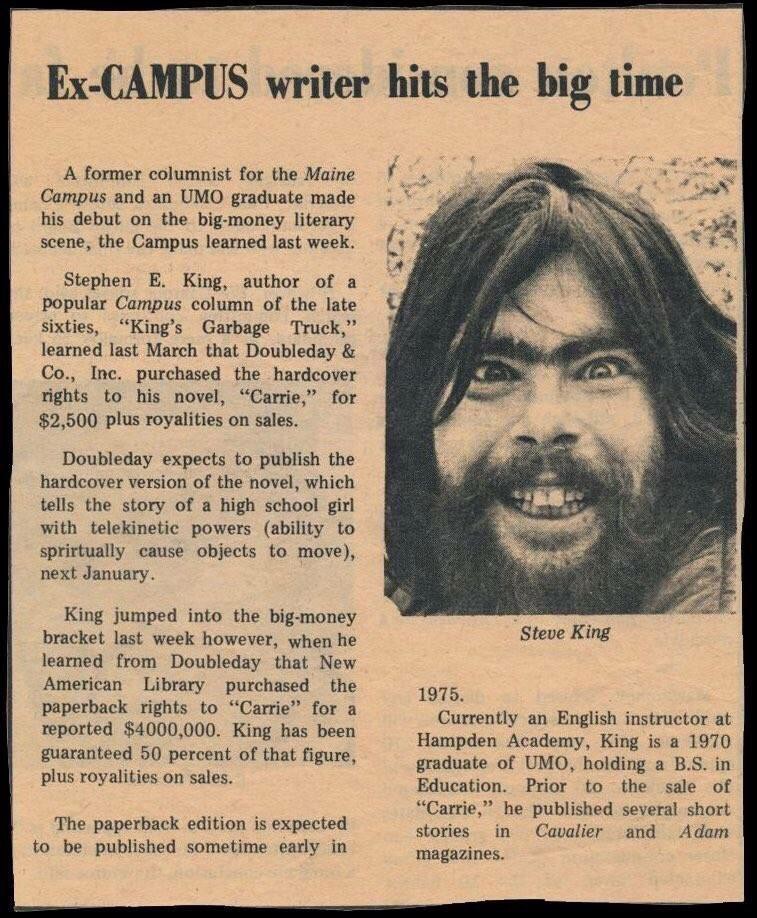
CONCLUSION
In every successful person?s life, extraordinary opportunities which are hidden, play a critical role. Society, culture, people around him, parents, teachers influence the success and shapes the world-view perception of the individual. Sometimes where and when we grew up makes a massive impact on an individual?s life.
Malcolm Gladwell writes ?Success is the result of ?Accumulative Advantage?.
AVAILABLE ON AMAZON –
21 KEYS to SUCCESS in BUSINESS -A Guide for Every ASPIRING ENTREPRENEUR by Shah Mohammed M.
References: ?On Writing? by Stephen King, Wikipedia pages, Outliers by Malcolm Gladwell, Louisa Mellor ? Article in Den Of Geek, The enduring legacy of the twilight zone-article in The New Atlantis by Brian Murray, Paley Center for Media, Article in Independent.ie by Margaret Carragher, The Ascent Of Media From Gilgamesh to Google Via Gutenberg by Roger Parry, TV Shows and the Impact on Societies in 50s and 60s by Meleia M, Four TV Shows That Shaped the Genre by John Coon in NewsMax.


